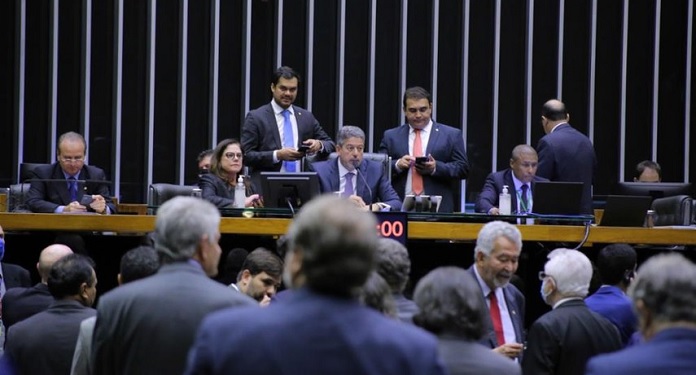The bill (PL) that defines the new General Sports Law (LGE) will return to the Senate. The agenda was approved by the Chamber of Deputies and, as it underwent some changes, it needs to be analyzed again by the senators.
According to Agência Senado, the deputies decided to update the Pelé law focusing on a single diploma all the rules that regulate sports in the country, from PL 1.153/2019, authored by Senator Veneziano Vital do Rêgo (MDB-PB). Nine proposals that were being processed in the House on the subject were appended to the text. Among them, PLS 68/2017, recently approved by the Senate and whose rapporteur was Senator Leila Barros (PDT-DF).
The substitute presented by Deputy Felipe Carreras (PSB-PE) preserved innovations approved by the senators, such as the typification of the crime of private corruption for sports directors and the immediate effectiveness for complying with the 30% quota of women in the management functions of sports entities contemplated. with public funds and lotteries. They also maintained equity in the awards between genders and measures to combat prejudice in sports spaces.
The text approved in the Chamber of Deputies had amendments referring to the original text in the point that addresses the systems for hiring athletes. One of the provisions allows clubs to determine a reduced amount to be paid in the event of termination of contract with the athlete.
Today, the Pelé Law forces the payment of 100% of the amount related to the complete contract, even if it was previously finalized. If this change goes ahead, players can still pocket the full amount, however, teams will have the possibility to negotiate the decrease at the time of hiring, setting the amount to be transferred in an eventual termination.
While the proposal approved by senators defined that the amount of the compensatory clause would be freely agreed between the parties and formalized in the special sports work contract, emphasizing, as a maximum limit, 400 times the value of the monthly salary at the time of termination and, as a minimum limit, , the total amount of monthly wages to which the athlete would be entitled until the conclusion of the contract.
Lotteries
The text approved by the deputies changes the distribution of the transfer of forecast lotteries (Mega-Sena, Quina and the like). Of the total that falls to the body responsible for sport (currently the Special Secretariat for Sport, of the Ministry of Citizenship), the project reduces 1.13% percentage to allocate resources to the state secretariats of Sport, in proportion to the bets made in its territory, for modalities Olympic and Paralympic Games.
The secretariats will have 1% more. The remainder will be shared between the Brazilian Sports Master Committee (CBEM), the Brazilian University Sports Confederation (CBDU) and the União dos Esportes Brasileiros.
In the fixed-odds lottery, in which players place bets on specific results of events, the text takes 1% of the operators’ gross profit and forwards the amount to the entities of the Olympic cycle — the Brazilian Olympic Committee (COB) and the Brazilian Paralympic Committee (CPB) and clubs aggregating entities (Brazilian Committee of Clubs, Brazilian Committee of Paralympic Clubs, Brazilian Confederation of School Sports and Brazilian Confederation of University Sports).
Of the associations that cede the rights to use their brands and symbols, the text takes 0.1% to distribute the resources between football referees and the Federation of Professional Athletes Associations (Faap). In addition, fixed-quota lottery operators without headquarters in Brazil will no longer be able to advertise in the country.




















































